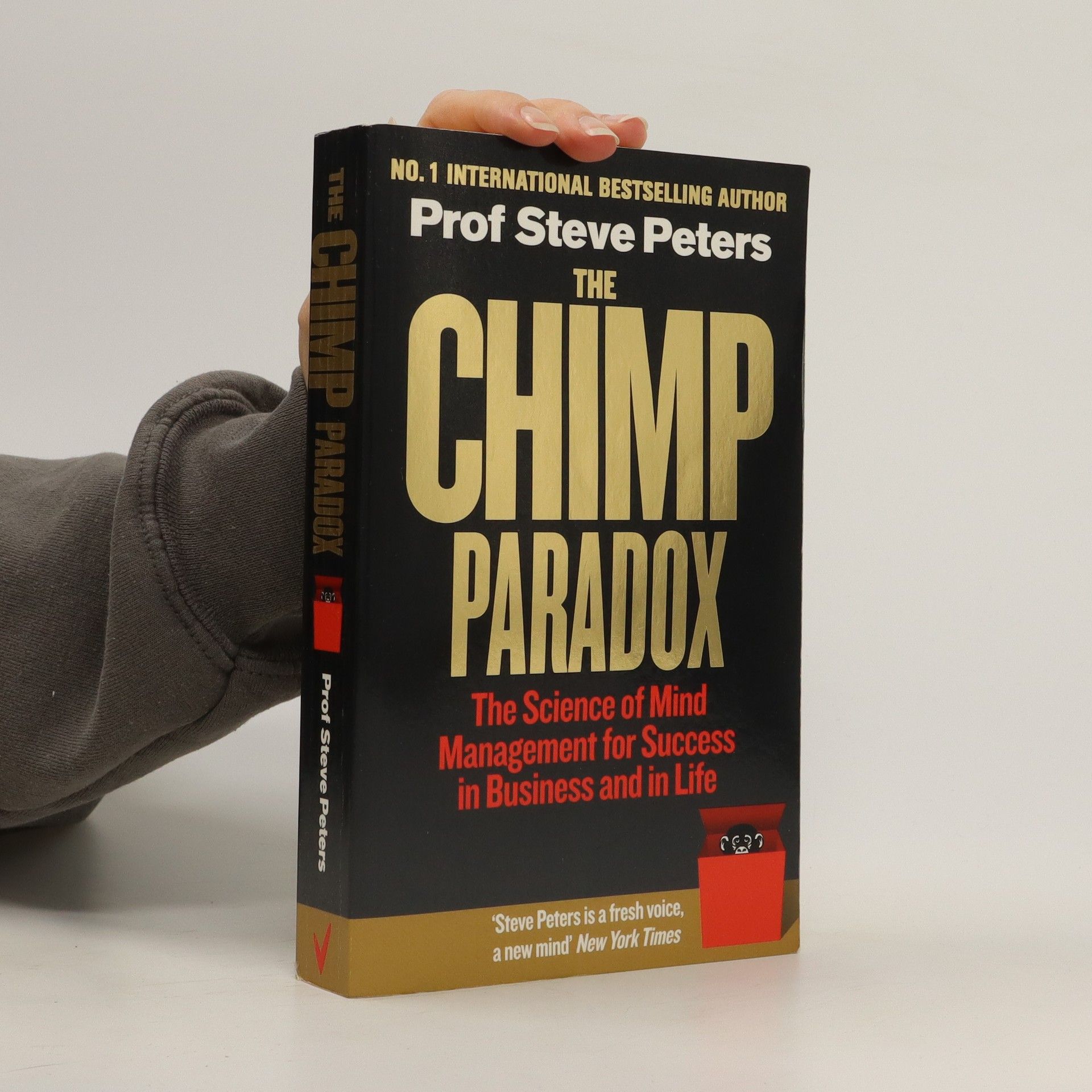Professor Steve Peters, the million copy bestselling author of The Chimp Paradox, has created a structured, practical self-development programme to help you attain psychological health and wellbeing. The 8 stages of the book help you to focus on yourself, empower you and leads you along a path to robustness and resilience.
Prof Steve Peters Boeken
Professor Steve Peters is gespecialiseerd in het optimaliseren van het functioneren van de geest, waarbij hij put uit zijn uitgebreide ervaring in de klinische psychiatrie en zijn achtergrond in wiskunde en geneeskunde. Zijn unieke model, ontworpen om individuen te helpen hun denkprocessen en gedragingen te begrijpen, heeft erkenning gekregen in zowel de topsport als de zakenwereld. Hij richt zich op hoe mensen hun gedachten en emoties effectiever kunnen beheren om hun prestaties in hun professionele en persoonlijke leven te verbeteren. Zijn aanpak biedt waardevolle inzichten voor iedereen die zijn mentale welzijn en effectiviteit wil verbeteren.







Learn how TEN habits can help children to understand and manage their emotions and behaviour. My Hidden Chimp is an effective and powerful new educational book that offers parents, teachers and carers some ideas and thoughts on how to help children to develop healthy habits for life. The science behind the habits is discussed in a practical way with exercises and activities to help children think the habits through and start putting them into practice. The neuroscience of the mind is simplified for children to understand and then use to their advantage. By also explaining the developing 'chimp' brain in children, Professor Steve Peters shows us how 10 habits can help them to understand and manage their emotions and behaviour. These 10 good habits should and can be retained for life. This is an important and another groundbreaking new book from the bestselling author of The Chimp Paradox and the creator of the chimp management mind model.
Peters explains that people all have a being within minds that can wreak havoc on every aspect of lifeNbe it business or personal. He calls this being "the chimp," and it can work either for people or against people. The challenge from comes trying to tame the chimp.
The Chimp Paradox
- 368bladzijden
- 13 uur lezen
"An incredibly powerful mind management model that can help a person become happier, more confident, and a healthier more successful person"--Cover.
Paradox šimpanze
- 320bladzijden
- 12 uur lezen
Lidskou mysl ovládají racionální Člověk a emocionální Šimpanz, který může být vaším nejlepším přítelem nebo nejhorším nepřítelem. Existuje mnoho příruček, které radí, jak se stát dokonalým člověkem a zbavit se různých nectností, avšak efekt je často sporadický. Problém spočívá v tom, že tyto knihy poskytují pouze návody, ale skutečně účinné změny vyžadují pochopení nejen JAK, ale i PROČ. Britský psychiatr prof. Steve Peters vyvinul srozumitelný model lidského myšlení, nazvaný Paradox Šimpanze. Tento model zahrnuje tři centra: logického Člověka, emocionálního Šimpanze a Počítač, který uchovává naše zkušenosti. Naše myšlení a jednání odpovídají buď Člověku, nebo Šimpanzi. Rychlý Šimpanz reaguje okamžitě, ale ne vždy adekvátně, což může vést k pozdějším výčitkám. Také brání rozhodování v důležitých situacích, zatímco jinde jedná bez rozmýšlení. Kniha prof. Peterse nabízí nový pohled na fungování lidské mysli a ukazuje, jak zvládnout svého Šimpanze, aby nepřevzal moc. Petersův model přispěl k úspěchům britských cyklistů na olympiádě a pomohl snookerové hvězdě Ronnie O’Sullivanovi k návratu na světový trůn.
Das Chimp Paradox
Das Mind Management Modell für Selbstvertrauen, Erfolg und Glück